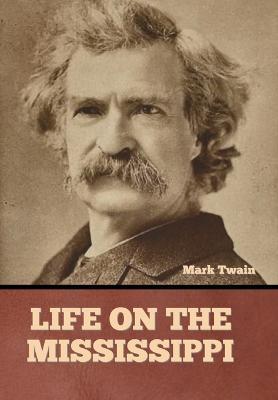Don't come to Mark Twain looking for a tightly outlined, focused work. He wasn't that type of writer. His books are closer to theme and variations - starting with an idea, riffing on it, detouring from it, throwing in another theme, detouring from that with wild, tangentially connected variations, and back around again. And somehow he makes it work with his one of a kind American voice that's always just barely concealing a chuckle. Life on the Mississippi is Mark Twain's memoir of his early life learning to be a pilot on a Mississippi River Boat during the glory days of those crafts. It's also a travel book, recording his trip on the river over twenty years after he had left it. It includes excerpts from his then work in progress, Huckleberry Finn (in a form different than you will find in that novel). It's full of broad jokes, tall tales, shaggy dog stories, and legends and folklore that Twain satirically deconstructs. He includes a bit of Mississippi River history, takes a few shots at some of his favorite targets (religion and the medieval romances of Sir Walter Scott) and even engages in some touching nostalgia as he visits his childhood home, Hannibal, Missouri. (Theo Logos) About Mark Twain Samuel Langhorne Clemens (November 30, 1835 - April 21, 1910), known by his pen name Mark Twain, was an American writer, humorist, entrepreneur, publisher, and lecturer. He was lauded as the "greatest humorist the United States has produced," and William Faulkner called him "the father of American literature". His novels include The Adventures of Tom Sawyer (1876) and its sequel, Adventures of Huckleberry Finn (1884), the latter of which has often been called the "Great American Novel". Twain was raised in Hannibal, Missouri, which later provided the setting for Tom Sawyer and Huckleberry Finn. He served an apprenticeship with a printer and then worked as a typesetter, contributing articles to the newspaper of his older brother Orion Clemens. He later became a riverboat pilot on the Mississippi River before heading west to join Orion in Nevada. He referred humorously to his lack of success at mining, turning to journalism for the Virginia City Territorial Enterprise. His humorous story "The Celebrated Jumping Frog of Calaveras County" was published in 1865, based on a story that he heard at Angels Hotel in Angels Camp, California, where he had spent some time as a miner. The short story brought international attention and was even translated into French. His wit











